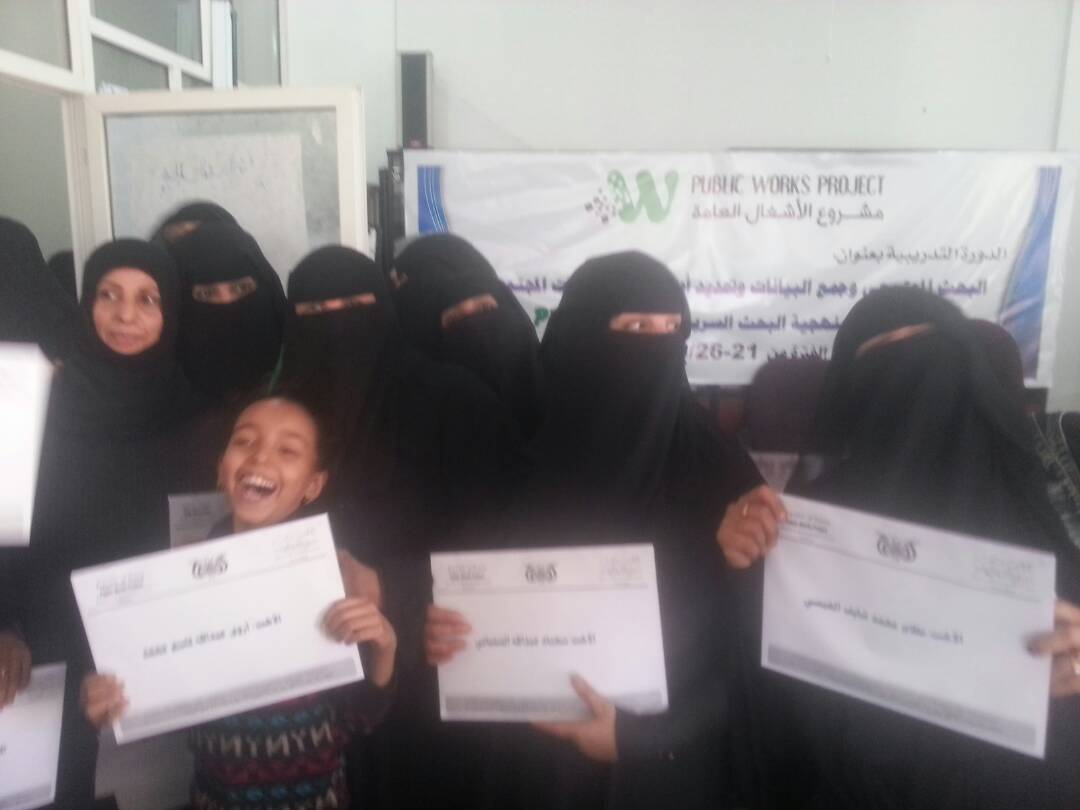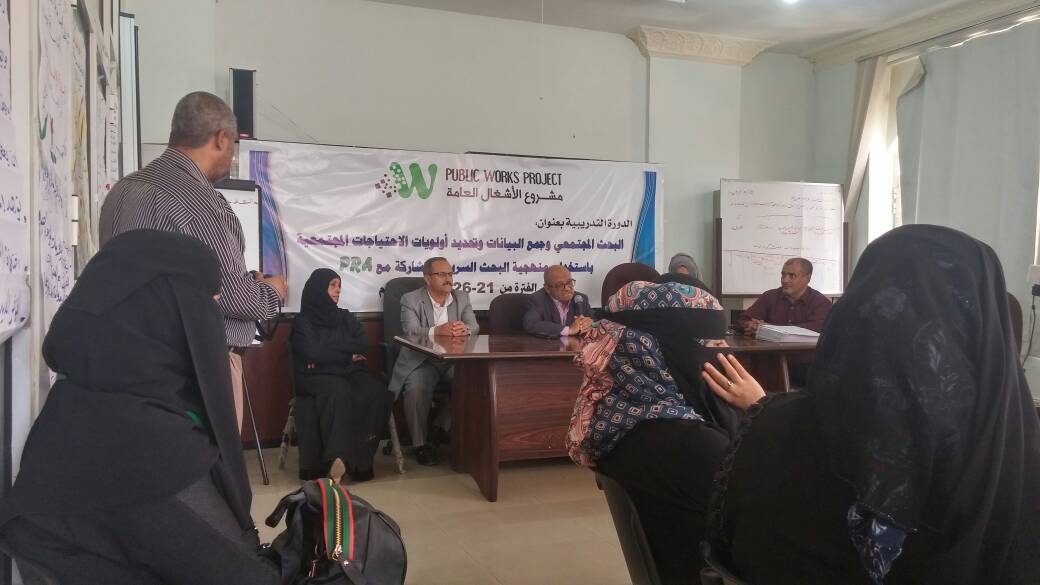Eng. Saeed Abdo Ahmed: Promotion of Women Participation means Activation of Half of Society.
Participants: Women Participation in Identification of needs, an Experience Unique to the Public Works Project.
The director of the Public Works Project (PWP), Eng. Saeed Abdo Ahmed has confirmed PWP's keenness to promote women's participation in the identification of priorities and project selection – particularly projects that are important and meet the needs of women.
In the closing of the training course on " Community Research, Data Collection, and identification of Community Priorities through the Use of the Rapid Research Participatory Approach", Eng. Saeed Abdo Ahmed said promotion of women's participation is an activation of half of society. He explained that the establishment of a gender unit within PWP reflect the serious policy and the practical implementation of that policy in the promotion of women's genuine and effective participation in identification of priorities and projects selection.
He added: "women's participation in 195 selected subprojects in 15 governorates has been 40% of the total subprojects tendered for implementation. 186 women community council have been formed engaging 6285 women in the selection and identification of subprojects. In fact, women participation exceeded men's participation in 74 subprojects, which means that the selected projects better reflect women's priorities".
Eng. Ahmed pointed out that efforts are continuing to engage women during the subprojects implementation phase as labor: "This is a new experience, unique to the PWP… and many of the contractors have shown a willingness to hire women in local communities to carry out appropriate work", he said.
He also added that labor statistics records show that 271 women have been employed in construction activities. Female consultant engineers are also participating in various activities including supervision of construction works. 117 female consultant engineers have been contracted…that's around 12% of the total number of consultants in PWP.
In his concluding remarks, the director of PWP stressed the importance that female consultants apply the knowledge, community research and needs assessments skills in the field, and that these skills and gender concepts should be transmitted to other to scale-up the benefit.

A representative of participants in the course spoke during the closing of the training course, praising PWP's initiative to promote women's participation in identification of priorities and needs assessments, and said that this is a remarkable experience unique to PWP.
The training course was held at the headquarters of PWP. 25 female participants, representing various areas and governorates of Yemen, attended the six-day training




